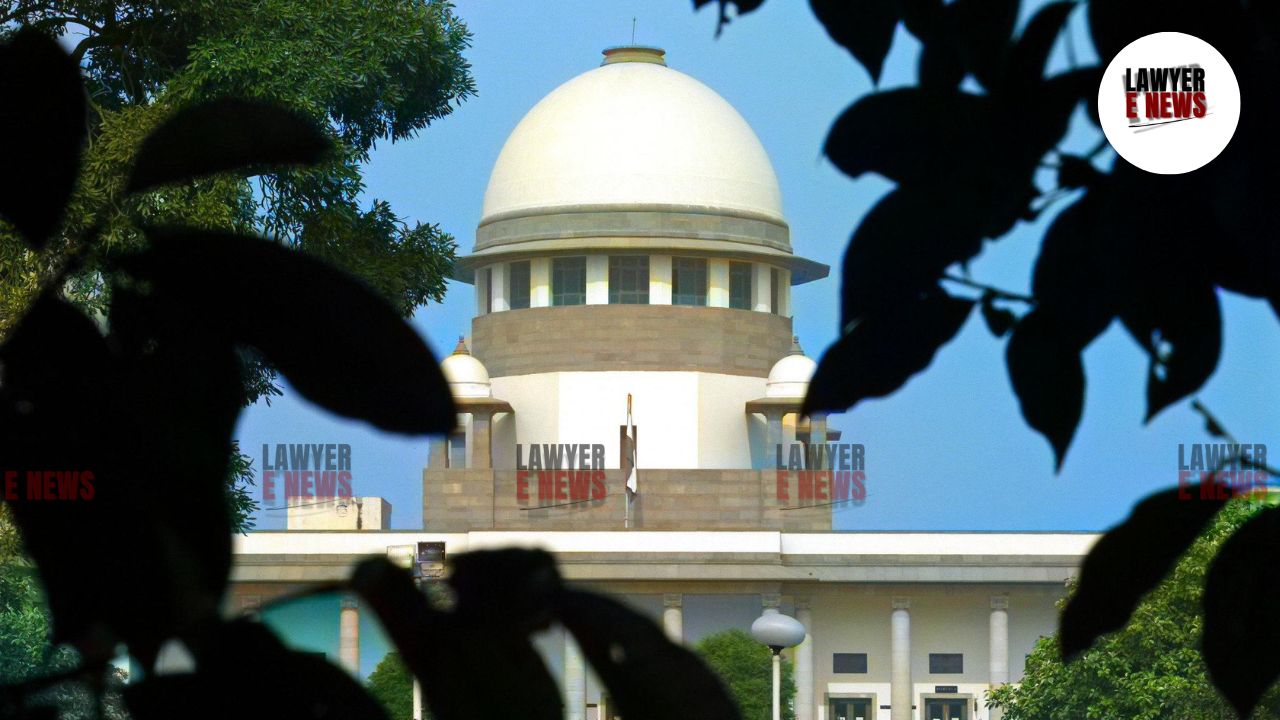-
by Admin
16 February 2026 1:47 PM



Individual Brilliance Can't Trump Collegial Discipline in Public Service - In a judgment that reaffirms the nuanced balance between merit and temperament in public service promotion, the Supreme Court of India upheld the Kerala Government’s decision to deny promotion to a senior IAS officer to the coveted post of Chief Secretary. The Court dismissed the challenge to the Screening and Review Committees’ decision, observing that outstanding individual record alone does not guarantee promotion in the absence of interpersonal and leadership qualities required at the apex administrative level.
Justice Joymalya Bagchi, writing for the Bench also comprising Justice Pamidighantam Sri Narasimha, declared: “Individual excellence may sometimes lead to superiority complex and hinder commitment to discipline, decorum and collegiality. Keeping in mind the essential requisite of collective leadership in highest echelons of civil service, the Committee was justified in giving due weightage to lack of adherence to discipline and collegiality.”
From Brilliant Bureaucrat to Litigation-Prone Administrator
The appellant had a distinguished academic and administrative record. Promoted to Principal Secretary in 2016, he became the senior-most officer in his batch, thus falling into the zone of consideration for promotion to Chief Secretary.
But when the Screening Committee met in December 2020, it noted that 90% of his ACRs (Annual Confidential Reports) were unavailable — a mandatory threshold under the promotion guidelines. Despite this, he was considered as a ‘special case’, and the available records were assessed.
The Committee concluded: “The gradings/remarks recorded in his available ACRs/PARs are not satisfactory. The performance of the officer has been below noteworthy over the years… The name of Appellant is not fit to be included in the panel for promotion to the Apex Scale.”
This decision, approved by the Council of Ministers, led the officer to seek a review. The Review Committee, after a personal hearing, reaffirmed the denial, citing multiple adverse remarks, including:
· Absence from duty for nearly a year (2019–2020);
· Lack of interpersonal and leadership skills;
· Tendency to litigate against colleagues, including threats of defamation suits over ACRs.
Supreme Court: “Adverse Entries Prior to Earlier Promotion Lose Sting, But Continued Pattern Cannot Be Ignored”
The appellant argued that negative remarks prior to 2016 (when he was promoted) had been “washed off” and could not be used to deny further promotion. He also objected to references to a fact-finding report and observations from unrelated CAT proceedings, which were not formally part of his ACRs.
But the Court clarified: “Adverse entries prior to earlier promotion in 2016 do not relate to dishonesty and thus lose their sting. However, if post-promotion records reveal a similar trend of non-collegial conduct, the Committee is justified in taking a holistic view.”
Citing the judgment in Badrinath v. State of Tamil Nadu and other precedents, the Court emphasized:
“While adverse remarks can be considered weak material after a long time, they gain relevance if corroborated by continued patterns in behavior, especially for top-tier appointments.”
On Procedural Fairness: “Review Did Not Introduce New Reasons, Only Amplified Existing Ones”
The Court dismissed the appellant’s charge that the Review Committee had supplied new grounds not stated in the Screening Committee’s original order.
“The rationale expressed by Screening Committee was merely amplified by the Review Committee in light of the submissions and material placed by appellant.”
Noting that the officer had even threatened legal action against ACR writers during his review hearing, the Court remarked that: “Despite his brilliance, high grades were awarded to encourage correction, which he failed to utilize — a fact that reflects a fair and objective evaluation.”
Dismissing the appeal, the Supreme Court held that: “Promotion to the highest echelons of service demands more than just good grades — it requires institutional temperament, maturity and leadership. This Court finds no illegality or mala fide in the State’s decision.”
With this ruling, the Court underscored that promotion to sensitive public offices is not a matter of right, but of institutional trust, and that outstanding paper credentials cannot substitute the soft skills essential for senior leadership roles.
Date of Decision: 23 April 2025
